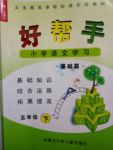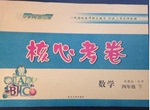题目内容
generating(发电)and transmission(输送) system for the 21st century will leave a lasting mark on the
West, for better or worse.Much of the real significance of railroads and highways is not in their direct
physical effect on the scenery, but in the ways that they affect the surrounding community.The same is
true of big solar plants and the power lines that will be laid down to move electricity around.
The 19th century saw land grants (政府拨地) offered to railroad companies to build the transcontinental railroads, leaving public land in between privately owned land.In much of the West, some of the railroad sections were developed while others remained undeveloped, and in both cases the landownership has
presented unique challenges to land management.With the completion of the interstate highway system,
many of the small towns, which sprang up as railway stops and developed well, have lost their lifeblood
and died.
Big solar plants and their power lines will also have effects far beyond their direct footprint in the
West.This is not an argument against building them.We need alternative energy badly, and to readily take
advantage of it we need to be able to move electricity around far more readily than we can now.
So tradeoffs will have to be made.Some scenic spots will be sacrificed.Some species will be forced
to move, or will be carefully moved to special accommodations.Deals will be struck to reduce the
immediate effects.
The lasting effects of these tradeoffs are another matter.The 21st century development of the American West as an ideal place for alternative energy is going to throw off a lot of power and money in the region.
There are chances for that power and money to do a lot of good.But it is just as likely that they will be
spent wastefully and will leave new problems behind, just like the railroads and the highways.
The money set aside in negotiated tradeoffs and the institutions that control it will shape the West far
beyond the immediate footprint of power plants and transmission lines.So let's remember the effects of
the railroads and the highways as we construct these new power plants in the West.
1. What was the problem caused by the construction of the railways?
A. Small towns along the railways became abandoned.
B. Some railroad stops remained underused.
C. Land in the West was hard to manage.
D. Land grants went into private hands.
2. What is the major concern in the development of alternative energy according to the last two
paragraphs?
A. The transmission of power.
B. The use of money and power.
C. The conservation of solar energy.
D. The selection of an ideal place.
3. What is the author's attitude towards building solar plants?
A. Cautious.
B. Approving.
C. Doubtful.
D. Disapproving.
4. Which is the best title for the passage?
A. How the Railways Have Affected the West
B. How Solar Energy Could Reshape the West
C. How the Effects of Power Plants Can Be Reduced
D. How the Problems of the Highways Have Been Settled

 小学学习好帮手系列答案
小学学习好帮手系列答案 小学同步三练核心密卷系列答案
小学同步三练核心密卷系列答案
| |||||||||||||||||||||||||||||||||||||||||||||||||||||||||||||||||||||||||